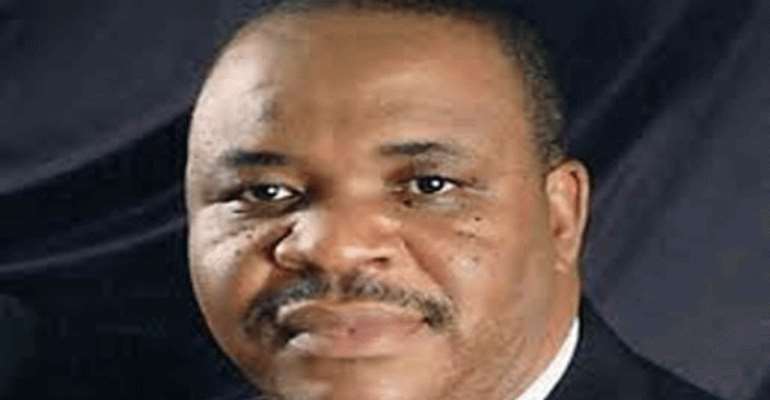An Express Road of controversy – Thisday

The reconstruction of the Lagos-Ibadan Expressway is getting more intriguing
The Lagos-Ibadan Expressway has been in the news lately but for reasons that are not particularly exciting. How the reconstruction of the 36-year-old, 105-kilometre highway would be financed without subjecting the federal government to ridicule, or in fact, a protracted legal backlash, is at the heart of the new twists.
The confirmation that the road might be up for another round of Public- Private Partnership (PPP) concessioning was formally announced last week by the Minister of Works, Mike Onolememen. While it is expected to gulp N167 billion, the federal government is eager to provide 30 per cent of the total sum, yet it can only hope to raise half of the N50 billion of its share this year, leaving the balance of N25 billion till next year. The remaining sum, according to the minister, would be raised through private capital. Not only does the subtle advertisement for private investors on the road suggest that the 48-month time frame that President Goodluck Jonathan gave last year might no longer be feasible, the volte face also means that the president stands the risk of being accused of misinforming the nation.
It is noteworthy that on July 5, 2013, when President Jonathan personally flagged- off the reconstruction of the road with pomp and pageantry, he justified the revocation of the concession already granted Bi-Courtney Highway Services Limited on the basis of non-performance. He also explained why the road contract then had to be awarded to Julius Berger Plc and Reynolds Construction Company (RCC). It is therefore curious that seven months after that flag-off, Nigerians are now being told of some fundamental modifications to the nature of financing and execution of the road project.
According to the director of information of the Ministry of Works, Mr. Bisi Agbohin, the ministry has now settled for 'a private sector-led financing' wherein the federal government will raise 30 per cent of the needed N167 billion while private 'funders and financiers' will provide the remaining 70 per cent. The federal government's 30 per cent is expected to be raised over two years at N25bn each year, essentially through an 'irrevocable guarantee' on the loan from Infrastructure Bank. Without doubt, the argument for an infusion of private sector equity in financing the Lagos-Ibadan expressway is desirable. But to go this route at this time, in this odd manner, totally runs contrary to the promises made by the president in taking the project off Bi-Courtney Ltd.
Several questions are begging for answers: was the president misled into revoking Bi-Courtney's concession in the first place with the assurance that the federal government could finance the reconstruction by itself? Who specifically are the new 'funders and financiers' that the federal government expects 70 per cent of the money to fix the road from? Have they already been pre-selected and by what process? If they have not been selected, how would they be chosen without going through public advertisement and competitive bidding as required by the act setting up the Infrastructure Concession Regulatory Commission (ICRC)? By whichever form the selection of the 'funders and financiers' take, would they be required to work with Julius Berger and RCC who have already commenced minimal, even if painfully slow, rehabilitating work on the road or would both construction companies metamorphose from being contractors to concessionaires at some point?
Indeed, it should be of interest to know how the N167 billion proposed cost of the contract was arrived at with minimal infrastructural proposition compared to the N89.53 billion for which Bi-Courtney wanted to execute the project and toll for 25 years. To what should we attribute this humongous N77.47bn difference?
In proceeding with the Lagos-Ibadan Expressway on a sure footing, the federal ministry of works has more urgent clarifications to make and same with the ICRC, if the trust and support of the discerning public is to be earned on this very important road network.
